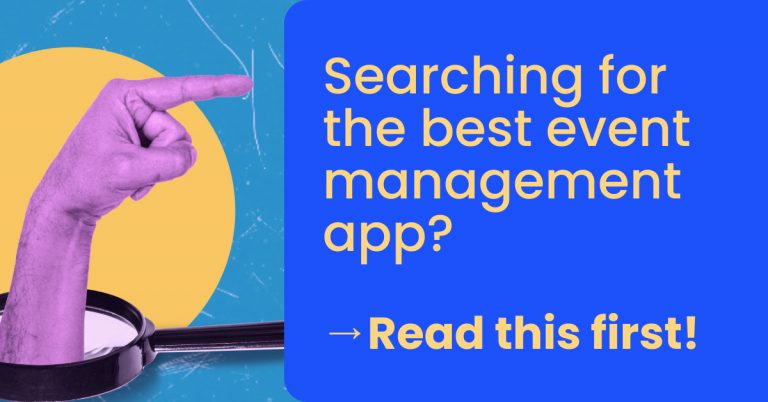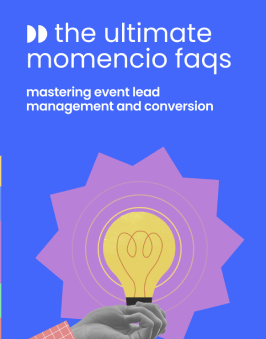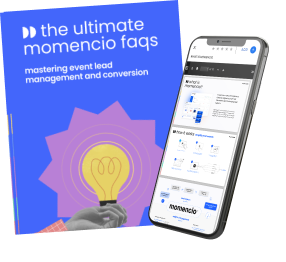Maximum event ROI refers to achieving the highest possible return on investment from hosting or participating in events. Effective resource allocation is paramount for driving growth and ensuring long-term business success. By judiciously allocating resources, including finances, manpower, and time, you can enhance operations, seize opportunities, and maximize your return on investment (ROI). In this article, we’ll explore foundational concepts and strategies for resource allocation to optimize ROI.
TL;DR: Efficient resource allocation is key to maximizing event ROI. Learn how to prioritize spending on key areas such as attendee engagement, lead capture technology, and post-event analytics to ensure your event drives the highest possible returns.
What is ROI?
ROI, or return on investment, gauges the profitability of investments. Essentially, it measures the financial return on marketing endeavors. To determine ROI, you need to know both the cost of the investment and the revenue generated.
Whether it’s online advertising or email marketing, ROI can evaluate the effectiveness of any campaign. A positive ROI indicates a successful campaign, while a negative one suggests it might be time for a strategy pivot.
The importance of allocating resources for maximum event ROI
Resource allocation is pivotal for achieving desired outcomes. Misallocated resources can lead to unmet objectives or, worse, wasted resources. Recognizing the importance of resource allocation is the first step toward crafting a robust ROI strategy.
Resource allocation involves deciding how much money, manpower, and time you’ll dedicate to each initiative. This is crucial for marketing strategy success, ensuring optimal resource utilization. A well-devised resource allocation strategy can bolster ROI, drive conversions, and elevate overall revenue.
1. Establishing your goals for maximum event ROI
Before delving into resource allocation tactics, having a firm grasp of your event’s goals is critical. Whether it’s a conference, trade fair, seminar, or product launch, identifying your objectives is the cornerstone for effective resource allocation.
Important questions to consider:
- What is the main goal of this event?
- What exact results do you want to achieve?
- How will you assess the event’s performance and overall success?
- What type of memorable experience do you want your guests to have?
Answering these critical questions gives you the direction to create an efficient resource allocation strategy.
2. Conduct a comprehensive resource audit
Assess your current resources, including finances, manpower, equipment, and technology. This will help identify potential gaps or inefficiencies and guide your allocation decisions.
3. Optimize your finances
Draft a detailed budget encompassing projected revenue, expenses, and resource allocation. Regularly review and adjust your budget to ensure alignment with your goals and to accommodate market or industry shifts.
4. Monitor performance and evaluate
Set key performance indicators (KPIs) to gauge the effectiveness of your resource allocation decisions. Regularly review performance data to identify trends, measure progress, and refine your resource allocation strategy.
5. Stay agile
In our dynamic world, agility is key. Be prepared to adjust your resource allocation strategy in response to emerging opportunities, challenges, or market shifts.
6. Leverage event planning solutions
Invest in comprehensive event planning tools to enhance event ROI. Such tools streamline the planning process, enabling data-driven decisions based on real-time event insights.
7. Track interactions
Monitor attendee interactions and engagement during the event. Utilize interaction tracking tools to gather data on popular sessions or activities. This real-time intelligence allows for on-the-spot adjustments to optimize event outcomes.
8. Determine ROI metrics
Identifying ROI metrics involves selecting KPIs that help quantify the return on a particular business initiative. These metrics offer valuable insights into an investment’s success or failure, enabling data-driven decisions.
The significance of event technology integration
In today’s digital era, seamless event technology integration is indispensable. Ensure your event planning software, engagement strategies, and tracking systems are interconnected. This integration ensures real-time data capture and analysis, forming the foundation for informed decision-making and event success.
Benefits of event technology integration:
- Real-time data: Access real-time data, allowing immediate adjustments to enhance attendee engagement and ROI.
- Streamlined communications: Facilitate seamless communication among event planners, exhibitors, presenters, and attendees.
- Enhanced attendee experience: Integrated event technology enriches the attendee experience by offering interactive features, personalized content, and instant access to event information.
Event evaluation and ROI calculation
You must assess the impact and ROI of your event to determine the efficacy of your resource allocation plan. Use ROI-focused event software to precisely measure critical metrics:
Lead generation: Determine the amount and quality of leads produced during the event.
Revenue generation: Determine the revenue directly ascribed to the event.
Attendee satisfaction: To assess the whole event experience, solicit feedback from attendees.
Cost per lead: Calculate the effectiveness of lead generation in proportion to your budget.
Takeaway
Event success isn’t solely measured in financial terms. Attendee satisfaction and the event’s broader impact are equally vital.
Having the right tools is essential for optimizing event ROI and mastering resource allocation. momencio stands out as a trusted partner in this endeavor. With its comprehensive suite of event management and engagement tools, momencio seamlessly integrates cutting-edge event technology to enhance every facet of your event, from real-time data capture to digital marketing collateral creation. Book a demo with momencio today!
FAQs on maximizing event ROI
- What is Maximum Event ROI?
- Maximum Event ROI refers to achieving the highest possible return on investment from hosting or participating in events. It involves optimizing various elements such as budgeting, resource allocation, attendee engagement, and marketing strategies to ensure the event generates maximum financial returns and value.
- How can I calculate the ROI of an event?
- To calculate the ROI of an event, subtract the total costs of the event from the total revenue generated, then divide by the total costs. Multiply the result by 100 to get your ROI percentage. It’s essential to consider both direct revenue (e.g., ticket sales) and indirect revenue (e.g., future sales from leads generated at the event).
- What strategies can enhance Maximum Event ROI?
- Enhancing Maximum Event ROI involves several strategies, including:
- Setting clear goals and objectives for the event.
- Creating a detailed budget and sticking to it.
- Engaging attendees through interactive content and networking opportunities.
- Using event technology for efficient planning and real-time insights.
- Tracking and analyzing event performance to inform future decisions.
- Enhancing Maximum Event ROI involves several strategies, including:
- Can digital marketing improve my event’s ROI?
- Yes, digital marketing plays a crucial role in improving an event’s ROI by increasing visibility, engaging potential attendees, and driving ticket sales. Strategies such as targeted social media campaigns, email marketing, and event websites can effectively reach your audience and boost event success.
- How important is attendee satisfaction in achieving Maximum Event ROI?
- Attendee satisfaction is critically important in achieving Maximum Event ROI. Satisfied attendees are more likely to become repeat attendees, recommend your event to others, and engage with your brand post-event, all of which contribute to higher ROI through increased loyalty and future revenue opportunities.
- What role does technology play in maximizing event ROI?
- Technology plays a pivotal role in maximizing event ROI by streamlining event management processes, enhancing attendee engagement, and providing valuable data insights. Tools like event apps, registration platforms, and analytics software can help you manage your event more efficiently and measure its success accurately.
- How can I use data analytics to increase my event ROI?
- Data analytics can increase your event ROI by offering insights into attendee behavior, preferences, and engagement levels. By analyzing this data, you can make informed decisions about marketing strategies, content creation, and event design to meet the needs of your audience better and improve event outcomes.
- What are some common mistakes that can reduce event ROI?
- Common mistakes that can reduce event ROI include poor planning, inadequate marketing, failing to engage attendees, not leveraging event technology, and neglecting to track and analyze event performance. Avoiding these pitfalls is essential for maximizing the success and ROI of your event.
- How can I measure an event’s indirect benefits?
- Measuring indirect benefits involves tracking metrics such as brand awareness, customer satisfaction, and the quality of leads generated. Surveys, social media monitoring, and follow-up sales activities can help quantify these benefits and their contribution to overall event ROI.
- Can small businesses achieve Maximum Event ROI?
- Absolutely. Small businesses can achieve Maximum Event ROI by focusing on targeted, cost-effective strategies that leverage their unique strengths. Personalized experiences, niche marketing, and strategic partnerships can all contribute to a successful and profitable event, regardless of business size.













